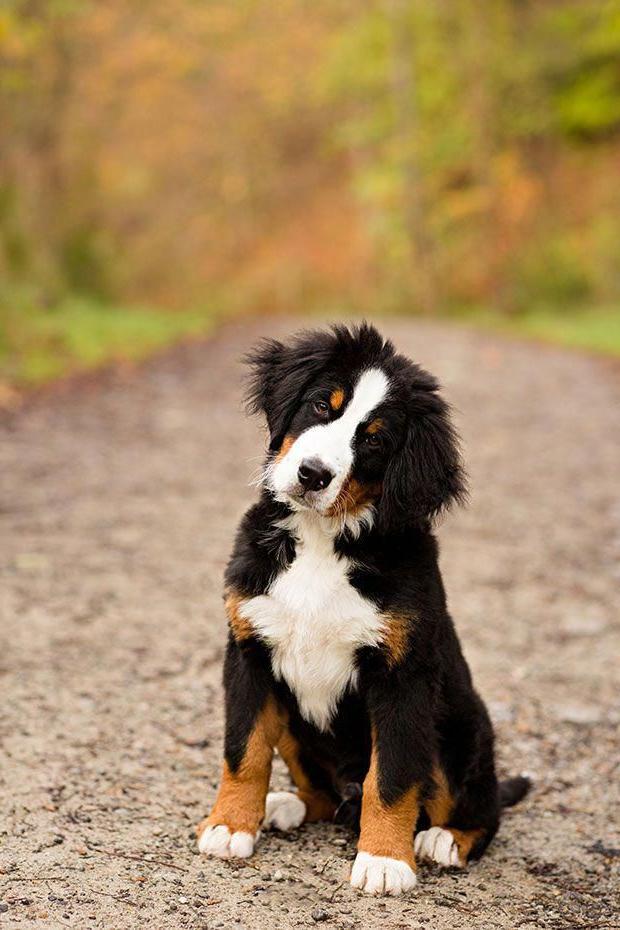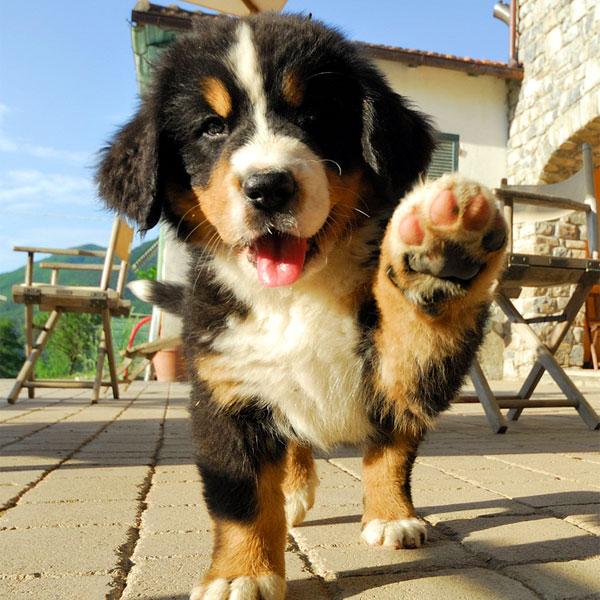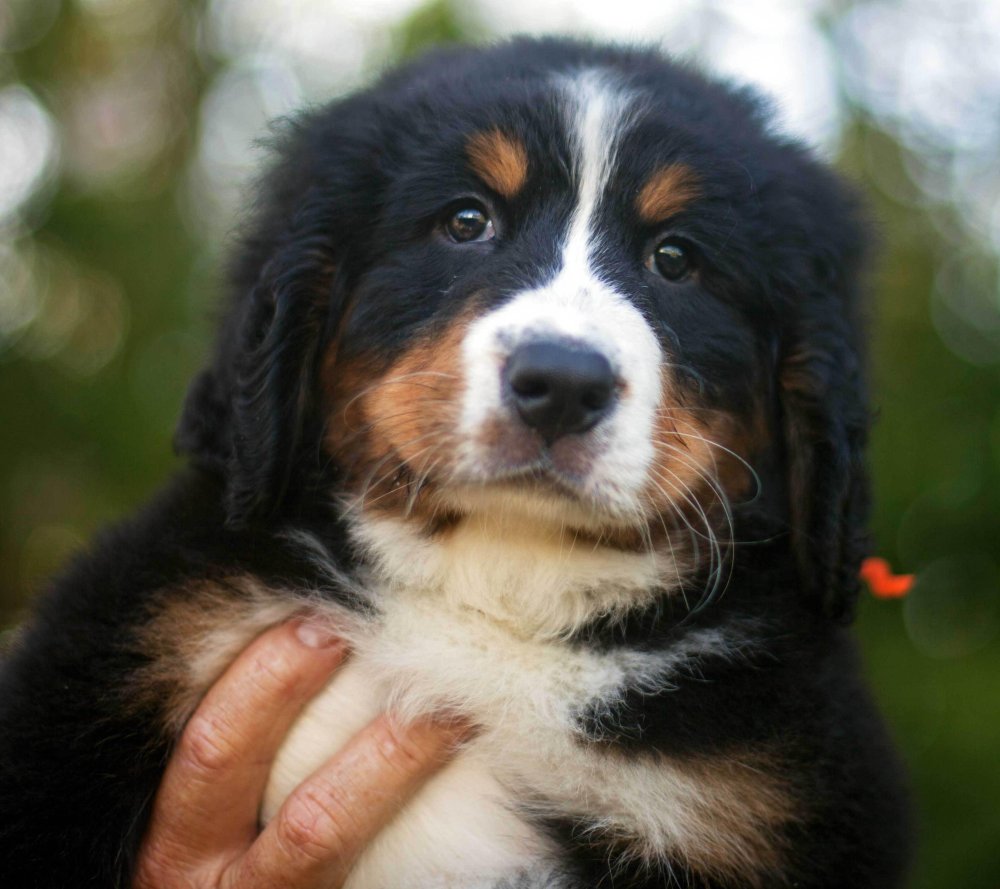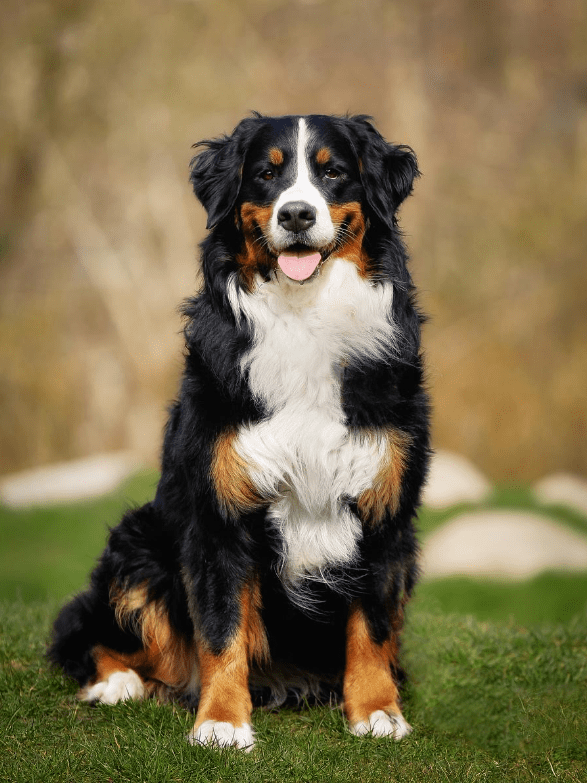- Breed Category: Working Group
- Country of Origin: Switzerland
- Average Height: Males 64-70 cm, Females 58-66 cm
- Average Weight: Males 38-50 kg, Females 36-48 kg
- Average Life Span: 7-10 years
- Grooming Requirements: Regular brushing needed
- Exercise Requirements: Daily exercise essential
- Coat Type: Thick double coat
- Coat Color Variations: Tri-colour: black, white, rust
- Shedding Level: High shedding
- Ear Type: Medium-sized, triangular
- Tail Type: Bushy, carried low
- Temperament: Affectionate, loyal, gentle
- Intelligence Level: High intelligence
- Barking Tendency: Moderate barking
- Compatibility with Children: Very good with children
- Compatibility with Other Pets: Generally good with other pets
- Training Ease: Relatively easy to train
- Common Health Issues: Hip dysplasia, cancer
- Dietary Needs: High-quality diet required
- Energy Level: Moderate energy
- Drooling Tendency: Moderate drooling
- Sensitivity to Weather: Sensitive to heat
- Overall Maintenance Level: Moderate maintenance
- Original Purpose: Draft and drover dog
- Year of Recognition by Kennel Clubs: 1937
- Apartment Friendly: Not ideal for apartments
- Best Suited For: Families with large yards
- Cost of Ownership: Moderate to high
- Unique Traits: Distinctive tri-colour coat
- Popularity Rank: Popular family dog
Choosing the right dog breed can be a bit of a puzzle, especially when you want a companion that fits your lifestyle. Enter the Bernese Mountain Dog, a breed that’s as charming as it is hardworking. Known for their striking tricolour coat and gentle temperament, these dogs are a favourite among families and outdoor enthusiasts alike. This article aims to give you a closer look at the Bernese Mountain Dog’s unique characteristics, rich history, and essential care tips.
Originating from the Swiss Alps, the Bernese Mountain Dog was bred to be a versatile farm dog. They were used for herding cattle, pulling carts, and being loyal companions to farmers. Their history is as robust as their build, making them a fascinating breed to explore.
Bernese Mountain Dog: A Glimpse into Their Heritage and Traits

Early Development of the Breed
The Bernese Mountain Dog’s roots trace back to the Swiss Alps, where they were developed as all-purpose farm dogs. Their ancestors were likely brought to Switzerland by Roman soldiers, and over time, these dogs adapted to the rugged terrain and harsh climate. This adaptation led to their strong, sturdy build and thick, weather-resistant coat, making them ideal for the demanding tasks they were bred for.
Role in Swiss Farming and as a Working Dog
In the heart of Swiss farming, Bernese Mountain Dogs were indispensable. They excelled in herding cattle and were often seen pulling carts loaded with milk and cheese to market. Their strength and endurance made them perfect for these roles, while their gentle nature ensured they were trusted companions to the farmers and their families.
Key Historical Figures and Events
One pivotal moment in the breed’s history was the early 20th-century efforts by Swiss breeders to preserve the Bernese Mountain Dog. Albert Heim, a Swiss geologist and dog enthusiast, played a crucial role in this preservation. His dedication helped establish breed standards and promote the Bernese Mountain Dog beyond Swiss borders.
Physical Characteristics
Bernese Mountain Dogs are easily recognisable by their striking tricolour coat, featuring a jet-black base with rust and white markings. They are large, powerful dogs, with males typically weighing between 38 to 50 kilograms. Their expressive eyes and friendly demeanour make them as appealing in appearance as they are in temperament.
Appearance and Unique Traits
The Bernese Mountain Dog is a sight to behold with its striking tricolour coat. The deep black base is beautifully contrasted by rust and white markings, giving them a distinctive and elegant appearance. These dogs are large and powerful, with males typically weighing between 38 to 50 kilograms. Their strong, sturdy build is a testament to their working heritage, designed to handle the rugged Swiss terrain.
One of their most unique physical traits is their thick, weather-resistant coat, which not only adds to their beauty but also serves a practical purpose. This coat keeps them warm in cold climates, making them well-suited for outdoor activities. Their expressive eyes and friendly face are hard to resist, often winning over anyone they meet.
Temperament and Behaviour
Bernese Mountain Dogs are known for their gentle and affectionate nature. They are incredibly loyal and form strong bonds with their families. Despite their size, they are often described as gentle giants, displaying a calm and patient demeanour. These dogs are great with children and other pets, making them ideal family companions.
While they are generally easygoing, they do have a playful side and enjoy engaging in activities that challenge them both physically and mentally. Their intelligence and eagerness to please make them highly trainable, though they respond best to positive reinforcement. Overall, their temperament is as appealing as their appearance, making them a beloved choice for many dog lovers.
Personality Traits and Suitability

Typical Personality Traits
Bernese Mountain Dogs are renowned for their loyalty, friendliness, and calmness. These gentle giants are incredibly devoted to their families, often forming strong bonds that last a lifetime. Their friendly nature makes them approachable and welcoming, while their calm demeanour ensures they fit seamlessly into various environments.
Suitability as a Family Pet and Working Dog
As family pets, Bernese Mountain Dogs are hard to beat. Their gentle and patient nature makes them perfect companions for households with children. They thrive in environments where they can be part of the family, enjoying both playtime and relaxation. As working dogs, their history of herding and cart-pulling showcases their strength and versatility, making them suitable for various tasks.
Interaction with Children and Other Animals
These dogs are known for their excellent interaction with children. Their patience and gentle nature mean they can handle the energy and unpredictability of kids. They also get along well with other animals, making them a harmonious addition to multi-pet households.
Training and Exercise Needs
Training a Bernese Mountain Dog is generally straightforward due to their intelligence and eagerness to please. They respond best to positive reinforcement techniques. Regular exercise is essential to keep them healthy and happy, with activities like walking, hiking, and playtime being ideal. Their working heritage means they enjoy tasks that challenge them both physically and mentally.
Training, Exercise, and Health of the Bernese Mountain Dog

Importance of Early Training and Socialisation
Getting a head start on training and socialisation is crucial for Bernese Mountain Dogs. These gentle giants benefit from early exposure to different environments, people, and other animals. This helps them grow into well-rounded adults, reducing the risk of behavioural issues down the line.
Recommended Training Techniques
Bernese Mountain Dogs are smart and eager to please, making them relatively easy to train. Positive reinforcement techniques work best, using treats, praise, and play to encourage good behaviour. Consistency is key, and short, engaging training sessions will keep them interested and motivated.
Daily Exercise Requirements and Activities They Enjoy
These dogs need regular exercise to stay healthy and happy. A daily walk or two, combined with some playtime, is usually enough. They love activities like hiking and even pulling carts, which tap into their working dog heritage. Mental stimulation is just as important, so puzzle toys and training games are great additions to their routine.
Health and Lifespan
Bernese Mountain Dogs typically live between 7 to 10 years. They are prone to certain health issues, such as hip dysplasia and certain cancers, so regular vet check-ups are essential. A balanced diet and proper exercise can help maintain their health and quality of life.
Health and Care for Bernese Mountain Dogs
Common Health Issues
Bernese Mountain Dogs are prone to certain health issues, including hip and elbow dysplasia, heart problems, and some types of cancer. Regular vet visits are crucial to catch any potential issues early. Keeping an eye on their weight can also help prevent joint problems.
Average Lifespan and Health Tips
These dogs typically live between 7 to 10 years. To help them live a full and healthy life, ensure they get plenty of exercise and a balanced diet. Regular check-ups with the vet can help manage any health concerns that arise.
Preventative Care Recommendations
Preventative care is key for Bernese Mountain Dogs. Regular vaccinations, flea and tick prevention, and dental care are essential. Consider joint supplements to support their large frame, especially as they age.
Grooming and Maintenance
Their thick, weather-resistant coat requires regular grooming to keep it in top condition. Brushing a few times a week helps reduce shedding and prevents matting. During shedding season, daily brushing might be necessary. Regular nail trims and ear checks are also important to maintain their overall health.
Coat Care and Grooming Routines

Shedding and Seasonal Grooming Tips
Bernese Mountain Dogs have a beautiful, thick coat that requires regular attention. Brushing a few times a week is essential to keep their coat healthy and reduce shedding. During shedding seasons, which typically occur in spring and autumn, daily brushing can help manage the extra hair. A slicker brush or a de-shedding tool works wonders in removing loose fur and preventing mats.
Diet and Nutrition
A balanced diet is crucial for the health and vitality of a Bernese Mountain Dog. High-quality dog food that meets their nutritional needs is a must. Look for options rich in protein and healthy fats to support their energy levels and coat health. Omega-3 fatty acids are particularly beneficial for maintaining their skin and coat. Always ensure they have access to fresh water, and consider consulting with a vet to tailor their diet to their specific needs, especially if they have any health concerns.
Nutritional Needs and Feeding Tips for Bernese Mountain Dogs

Nutritional Needs for Optimal Health
Bernese Mountain Dogs thrive on a diet rich in high-quality protein and healthy fats. These nutrients support their energy levels and maintain their striking coat. Omega-3 fatty acids are particularly beneficial for their skin and coat health. Always ensure they have access to fresh water.
Foods to Include and Avoid
Include lean meats, fish, and whole grains in their diet. Vegetables like carrots and spinach can provide essential vitamins. Avoid foods high in fillers, artificial additives, and excessive fats, as these can lead to obesity and other health issues.
Feeding Schedules and Portion Recommendations
Feed adult Bernese Mountain Dogs twice a day to maintain their energy levels. Puppies may require more frequent meals. Portion sizes depend on their age, weight, and activity level, so consult with a vet for tailored advice.
Fun Facts and Trivia
Did you know Bernese Mountain Dogs were once used to pull carts loaded with milk and cheese in Switzerland? Their strength and endurance made them perfect for this task. Despite their size, they are known for their gentle and affectionate nature, making them wonderful family companions.
Interesting Tidbits and Famous Bernese Mountain Dogs

Interesting Tidbits about the Breed
Bernese Mountain Dogs are not just known for their beauty and strength; they have some quirky traits too. For instance, they are often referred to as “Berner Sennenhund” in their native Switzerland, which translates to “Bernese Alpine Herdsman’s Dog.” This name reflects their deep-rooted connection to the Swiss Alps and their role as versatile farm dogs. Another fun fact is their love for cold weather. Thanks to their thick, weather-resistant coat, they thrive in cooler climates and often enjoy playing in the snow.
Famous Bernese Mountain Dogs in Media or History
While Bernese Mountain Dogs may not be as frequently featured in media as some other breeds, they have made their mark. One notable appearance is in the film “Good Boy!” where a Bernese Mountain Dog named Wilson plays a significant role. In history, these dogs have been celebrated for their work ethic and loyalty, often depicted in Swiss folklore and art as symbols of strength and companionship. Their gentle nature and striking appearance have made them beloved figures in various cultural narratives.
Final Thoughts
The Bernese Mountain Dog is a gentle giant with a rich heritage. Their blend of strength, loyalty, and affection makes them ideal companions for families and outdoor enthusiasts. While they require regular grooming and exercise, the rewards of their companionship are immense, offering both emotional warmth and practical assistance. Embracing a Bernese Mountain Dog means welcoming a devoted friend into your life, ready to share in adventures and quiet moments alike. Consider this breed if you’re seeking a loyal, loving addition to your family.
